I very rarely do not have tea with me. I drink tea all the time. Ninety percent of the time, you’ll probably find me with some sort of green tea; I’m actually drinking some Sencha green tea right now as I write this blog.
Green tea contains antioxidant health benefits, but let’s be honest: my true love of green tea comes from the mild, gentle caffeine boost (without the digestive urgency). I’m also a huge fan of herbal teas, especially for their health benefits.
I think it’s essential to go over types of tea first, then steps to making an informed decision about what tea brands to buy, then move into tea for gut health. In this post, I will focus on two types of tea: green tea and herbal tea.
Best Tea for Gut Health: Types of Tea and Choosing a Brand
Green tea
All tea, besides herbal tea, comes from the Camellia sinensis plant.
Black tea, white tea, and oolong teas also originate from the leaves of the Camellia sinensis plant; they are just harvested at different times and rolled and dried differently. All teas from the Camellia sinensis plant contain caffeine.
Herbal tea
Herbal teas either consist of a single herb or a mix of single herbs that can be steeped as tea. They don’t contain caffeine, but they can have many health benefits.
By the way, I’m focusing only on green tea and herbal tea because I have the most experience and have researched these types of tea.
Also, herbal tea is a vast category of tea, and we should focus our energy on it for its gut health benefits.
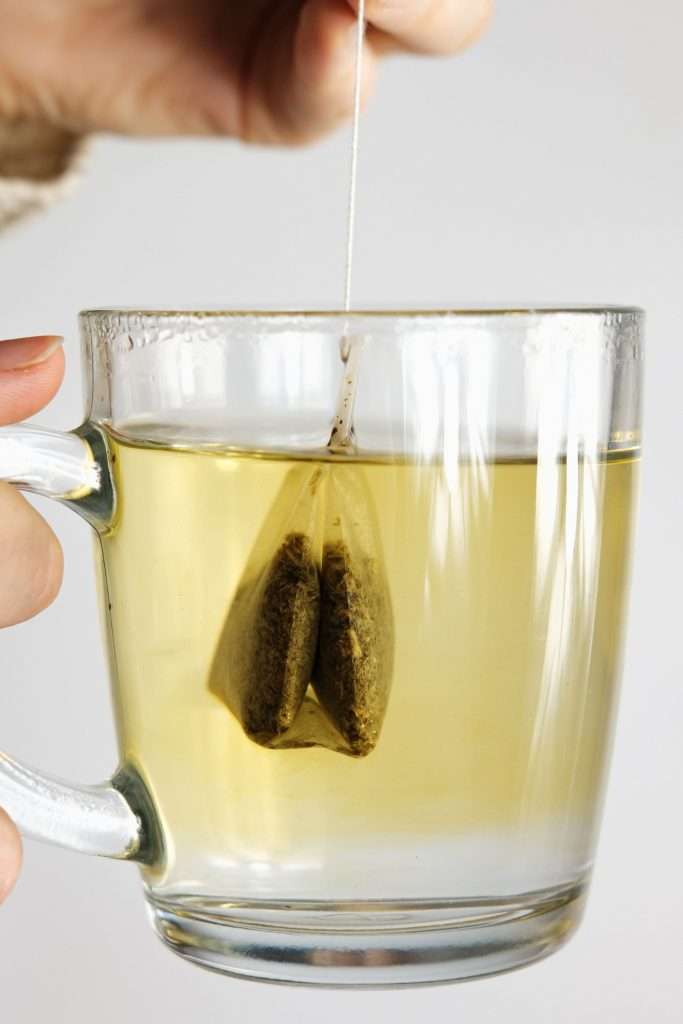
Choosing the Best Tea for Gut Health
There are so many tea companies and types worldwide that it can get a little overwhelming.
It’s best to find a brand of tea that meets healthy standards; then, you can safely shop for teas from that brand.
So here’s the breakdown of our top four considerations when choosing a brand of tea:
Organic Tea for Gut Health
- When exploring tea for health, looking for an organic brand is essential. Tea can be quite a dirty crop, covered in pesticides.
- Cheap, non-organic teas in the grocery store can be very high in pesticide residues. To avoid pesticides, make sure the tea is organic.
- I also like to make sure that the tea bag is unbleached.
- Some teas may be classified as “wildcrafted” and not organic. This is also a great option, indicating that the ingredients were foraged and not farmed.
Loose Leaf or Tea Bag?
- If you already buy organic tea in a tea bag, be sure it’s unbleached. Bleached tea bags contain dioxin, a bleach byproduct absorbed by fat tissues that can be carcinogenic over time.
- Loose-leaf teas are great if you have a tea strainer or steeper, but be sure the loose-leaf tea is also certified organic.
Flavors:
- If tea has an unnatural name, then don’t drink it. Imaginatively flavored teas (think blueberry muffin, pina colada, chocolate, etc.) most likely have “natural flavors,” which isn’t always good.
- I look for teas flavored only with whole herbs. It’s good to ensure that only the names of the whole herbs are in the ingredients list.
The Environment:
- We must take care of the planet to maintain healthy microbiomes and live our healthiest lives. As tea gains in popularity every year, choosing a brand that promotes and protects the environment’s health is essential.
- Most tea companies that attempt to give back to the environment to offset their impact will state something on their packaging. For instance, the tea brand we drink has a Tea for Trees campaign. They plant 5,000 trees each year in partnership with the National Forest Foundation. Also, their packaging is 100% recycled and recyclable. They try to close the gap on their environmental impact.
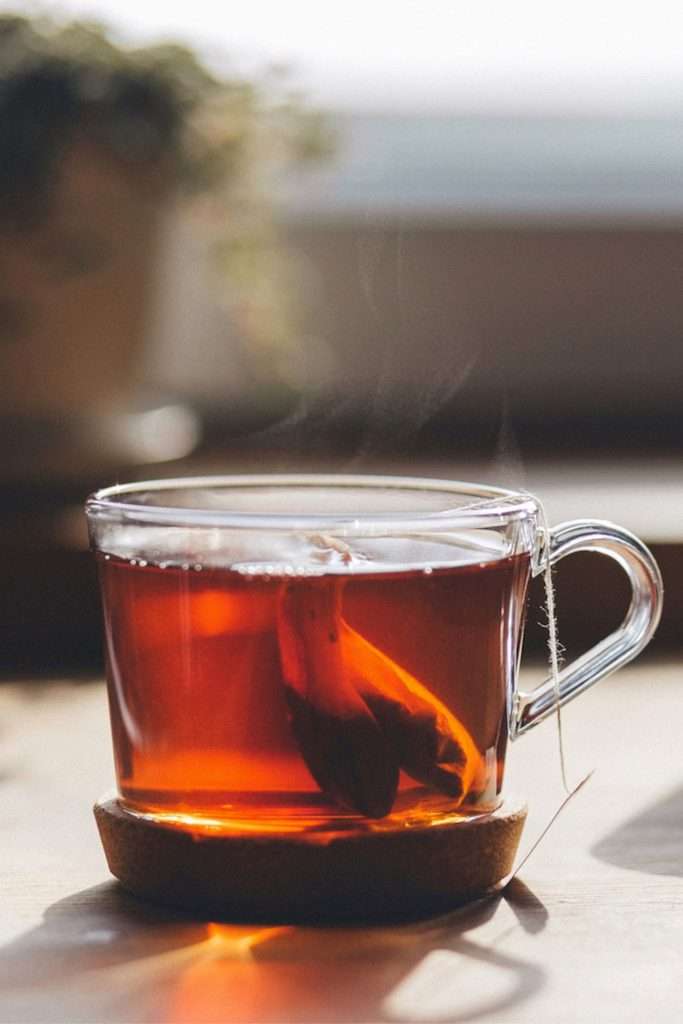
What is the Best Tea for Gut Health?
Buddha Teas
Just so you all know, this is not a sponsored blog; I really enjoy Buddha Teas. I came across their brand when searching for teas to help with various skin and health issues.
First, I drank their Chaga Mushroom and Milk Thistle teas religiously. They helped regulate my hormones and skin problems after I quit birth control. Now, I drink their sencha green tea daily.
Anyway, let me reference the four “choosing a brand” requirements I discussed above and tell you why Buddha Teas meets all these requirements and then some.
First, their whole packaging system is recyclable or biodegradable. They only use unbleached tea bags that are heat-sealed without harmful glues or binding agents.
All of their teas are 100% unaltered, organic, and wildcrafted. They never use “natural flavoring,” and their teas are only crafted from whole ingredients.
The fact that they plant 5,000 trees each year in partnership with the National Forest Foundation is beautiful. They created a tea brand that is a safe place to shop for teas, which is so wonderful.

My Go-To Best Tea for Gut Health
I’ll break this into sections, so it’s easier to digest (haha, get it?)
This list covers vital categories of gut health and which of my favorite gut-healthy Buddha Teas can help with each.
This is not medical advice; tea is not intended to cure, treat, or prevent diseases. Talk to your doctor about any medical conditions you have
Stress & Anxiety
Stress and anxiety can cause shifts in the microbiome, leading to an unbalanced population of microbes in the gut. This can cause problems like poor digestion, diarrhea, and inflammatory gut issues.
Certain herbs and teas can be a fantastic way to destress and protect the health of your gut microbiome. The best teas we’ve used to combat stress and anxiety are Turmeric and Ginger, Chamomile tea, Passionflower tea, and Valerian root tea.
These teas help with relaxation and focus and promote central nervous system relaxation.
Detoxification Tea for Gut Health
It’s great to give your body some support in detoxification, aiding the body in its natural processes that remove toxins from the body.
Promoting liver and kidney health is the main way to help with detoxification. The absolute best tea for this is the Zen Cleanse Buddha Tea. Other herbal teas to try are Dandelion, Milk Thistle, Divine Immunity Blend, elderberry, sage, oregano, and Calendula.
The Best Tea for Gut Health and Inflammation
Gut inflammation can be caused by pathogens, drinking alcohol, eating inflammatory foods, and even daily life.
Inflammation is terrible for the gut microbiome, and thankfully, many teas contain anti-inflammatory compounds that can help ease inflammation.
Some teas that help relieve inflammation are Chaga, Turmeric and Ginger, Red Clover, and Echinacea Elderberry blend.
Gut Lining
If your body needs some support in healing your gut lining, some great teas help repair and nourish the gut lining. They can even help with leaky gut syndrome: Marshmallow, Mint, and ginger.
Immune System
Having a robust immune system helps to keep your gut balanced. If your immune system is robust, you’re less likely to suffer detrimental symptoms affecting gut health. Some great teas to boost immune function: Elderberry, Cranberry, Feverfew and lemongrass, Rose Hips, Astragalus, Chaga, Green Tea, and Alfalfa.

Get The Best Tea for Gut Health
Certain types of tea can help ease stress and anxiety, decrease inflammation, boost the body’s natural detoxification processes, restore a healthy gut lining, and strengthen the immune system. This helps to keep the gut microbiome balanced.
You can find Buddha Teas on Amazon here.
Find gut-healthy fermented food recipes here.
Reference Material
Selenium-containing green tea has higher antioxidant and prebiotic activities than regular green tea
The potential influence of fruit polyphenols on colonic microflora and human gut health





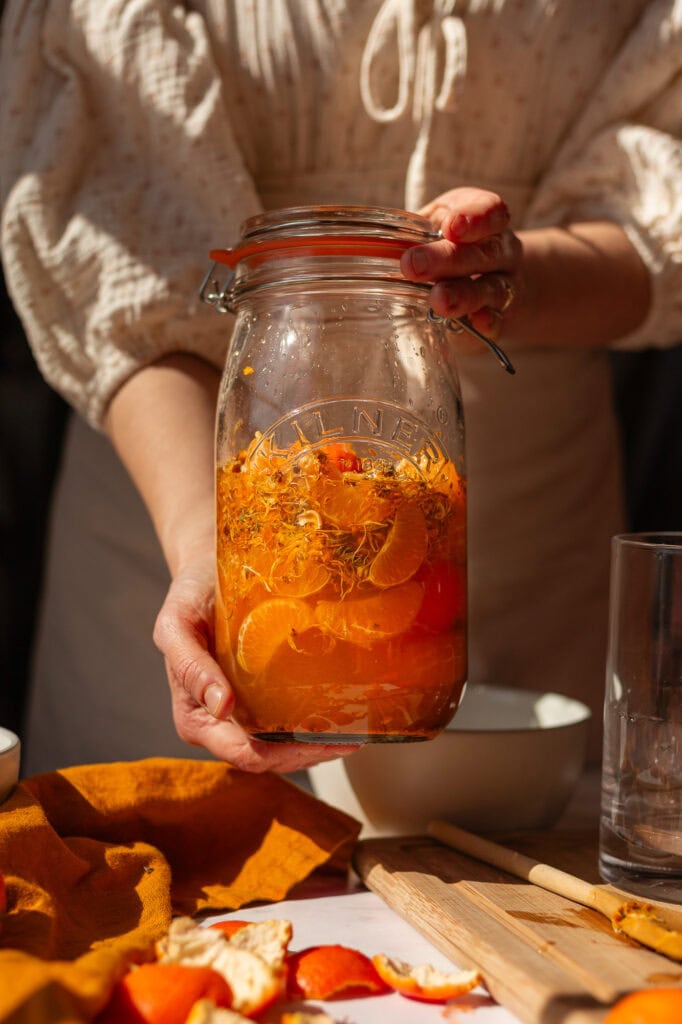


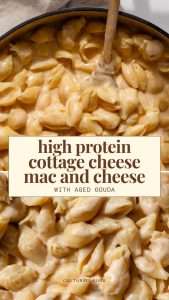


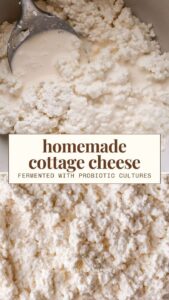
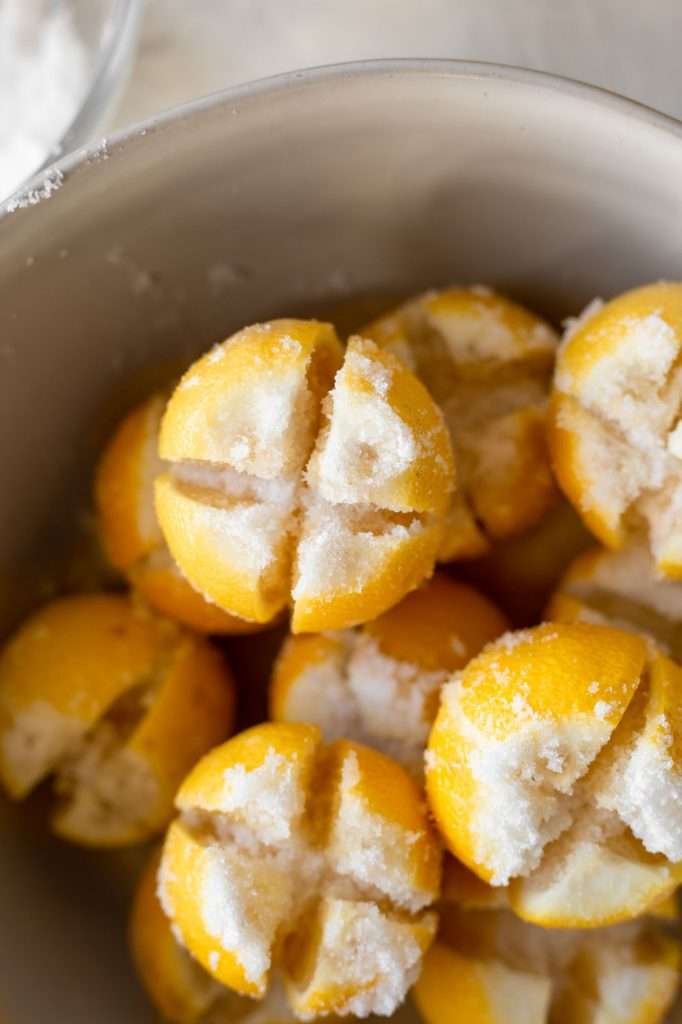
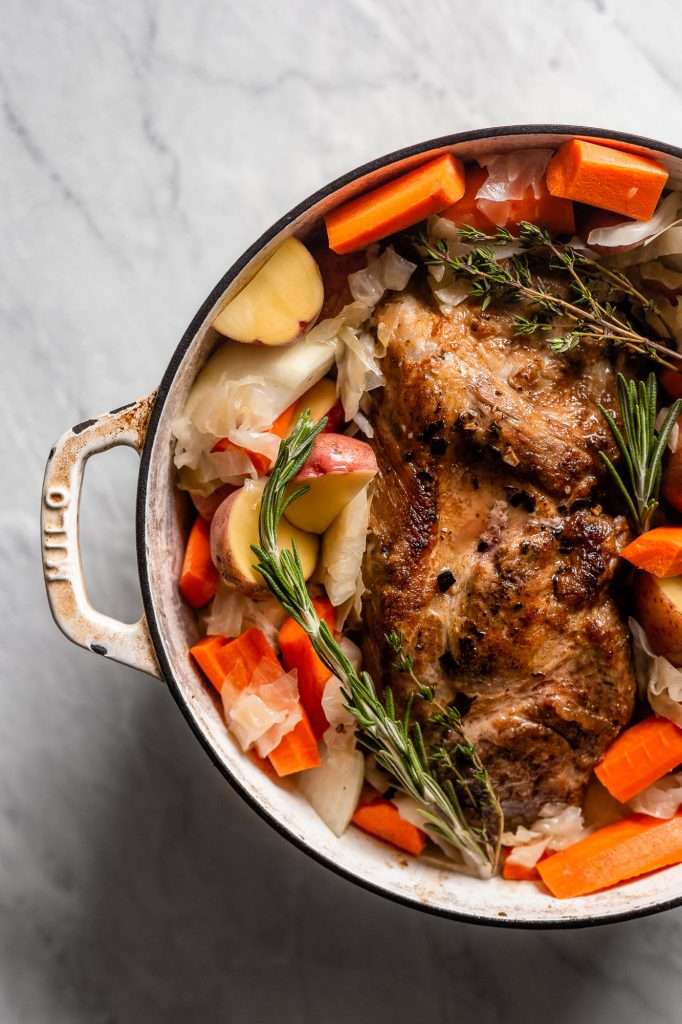
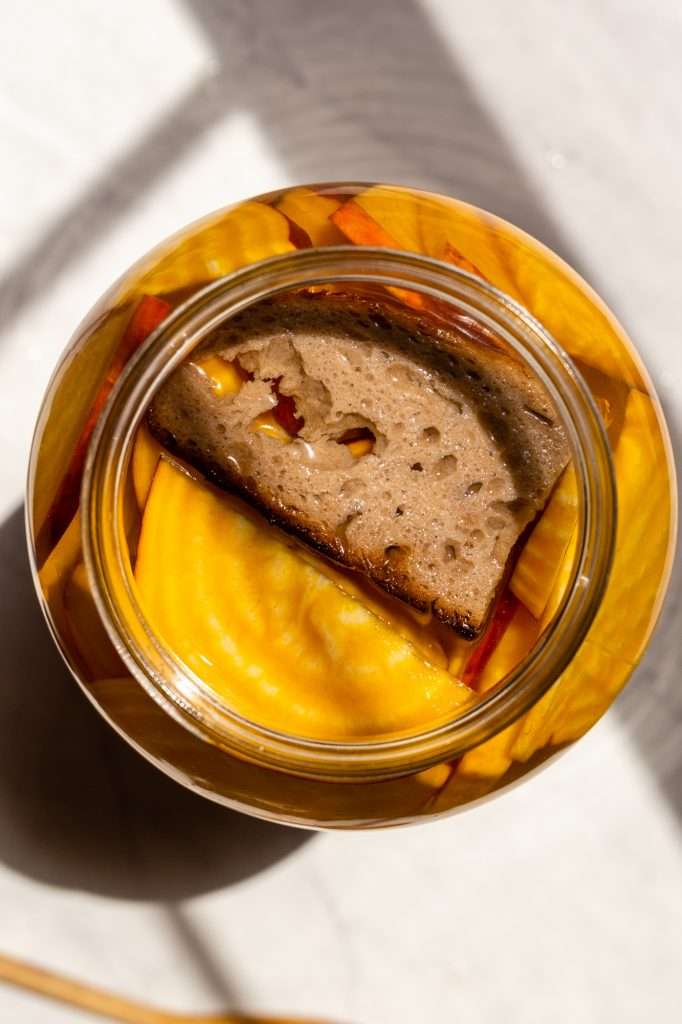
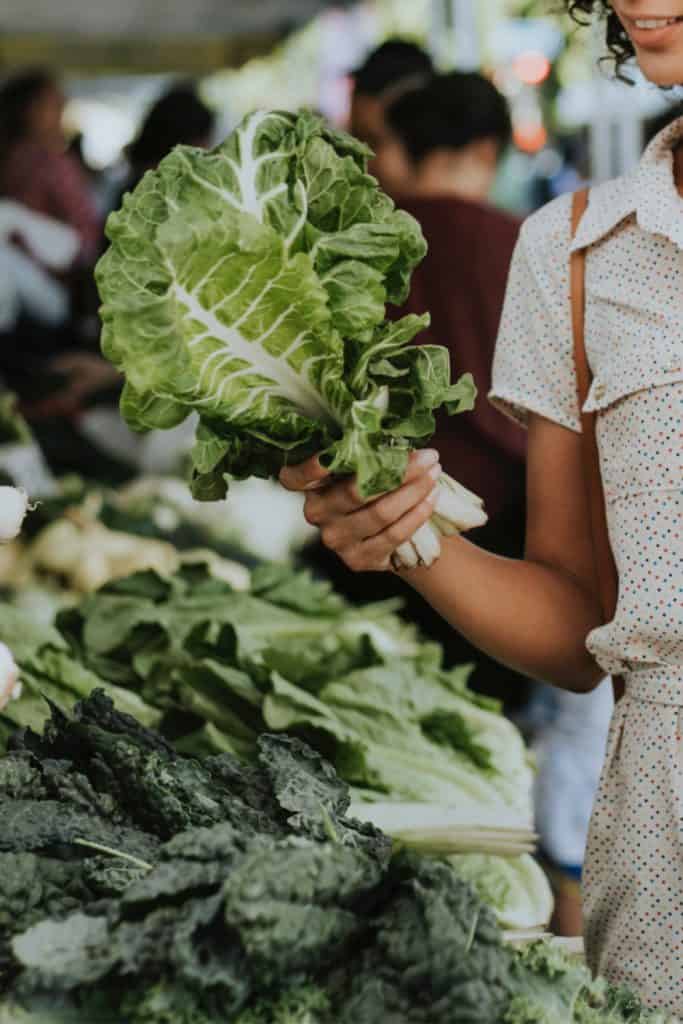




Great information and teachings
Which tea is best for leaky gut syndrome?
See the section titled “gut lining”